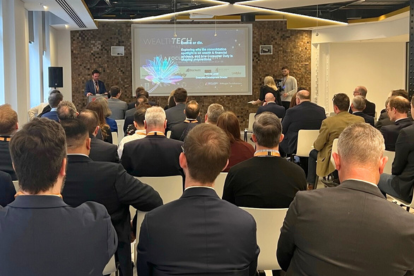Facilitator: Brod Whiting, JoyndUp Expert: Paul Darby, ROQ
Headlines:
- 70% of digital transformation projects fail due to poor planning, resistance to change, and overemphasis on 'shiny' technologies
- A 'quality first' approach is essential, integrating proactive quality engineering practices early in project design
- Engaging end users and documenting business processes are critical for de-risking implementations
Discussion points:
Introduction to Digital Transformation Failures
The high failure rate of digital transformation projects was cited with examples of major service outages in banks and airlines, illustrating the cost and inconvenience to customers.
Reasons for Project Failures
Key causes of failure included:
- User Adoption Issues: Resistance from advisers and end-users.
- Insufficient Planning: Neglecting to engage users early or understand business needs.
- Focus on Technology Over Practicality: Adopting new technologies without assessing their fit for purpose
- Delegates noted the need to position new technologies as complementary to existing roles, rather than threatening job security.
Quality Engineering Approach
The shift from reactive testing to proactive quality engineering. Key points included:
- Integration from Inception: Embedding quality practices during design phases.
- Long-term Focus: Convincing stakeholders to prioritise upfront investment for sustainable benefits.
- Challenges: Budget constraints and resistance to shifting traditional project models.
Key Considerations for Successful Digital Transformation
The three guiding questions following early engagement with users, understanding scalability, and focusing on essential functionalities should be:
- What are the end-user needs?
- What does the business need to know?
- What are the business priorities?
Challenges in Implementation
Delegates shared experiences about:
- Stakeholder Management: Balancing expectations while ensuring quality within time and budget constraints.
- Resistance to Long-term Thinking: Difficulty in persuading stakeholders to see beyond immediate costs.
Future Trends and Quality Engineering Charter
The group discussed the future of AI and technology in financial services, with the Quality Engineering Charter highlighted for promoting best practices in the industry.
Key takeaways:
- The importance of capturing existing business processes to mitigate risks
- Keep the end users and their needs at the forefront of transformation efforts
- Identify priorities and core functionalities before project initiation
- Balance stakeholder expectations with quality, time, and budget constraints
- Explore combining multiple AI models and extensive training to improve outcomes in multilingual settings
- Enhance user trust in AI systems through transparent privacy policies and clear data usage instructions
- Participate in the initiative to exchange and adopt best practices


